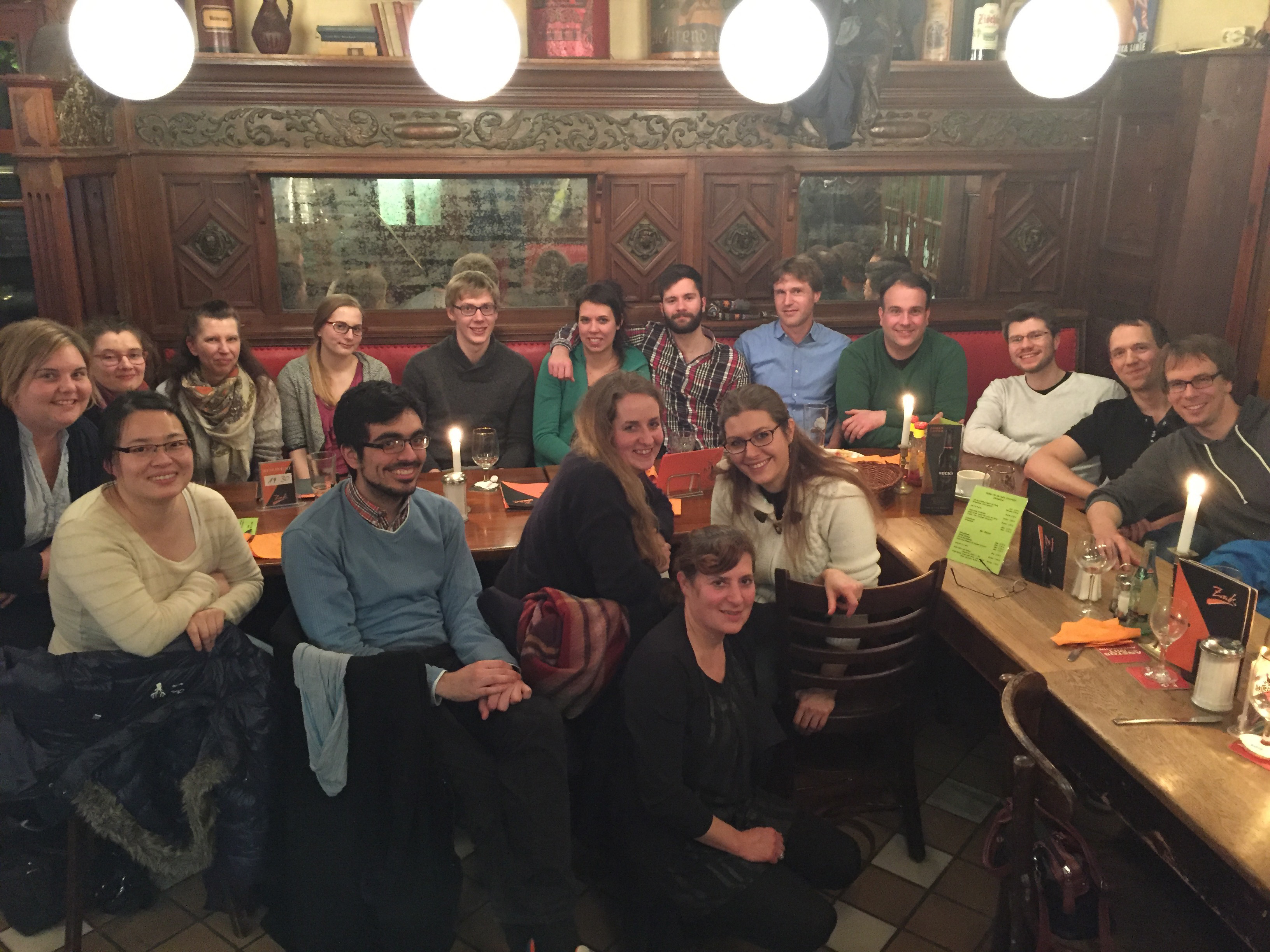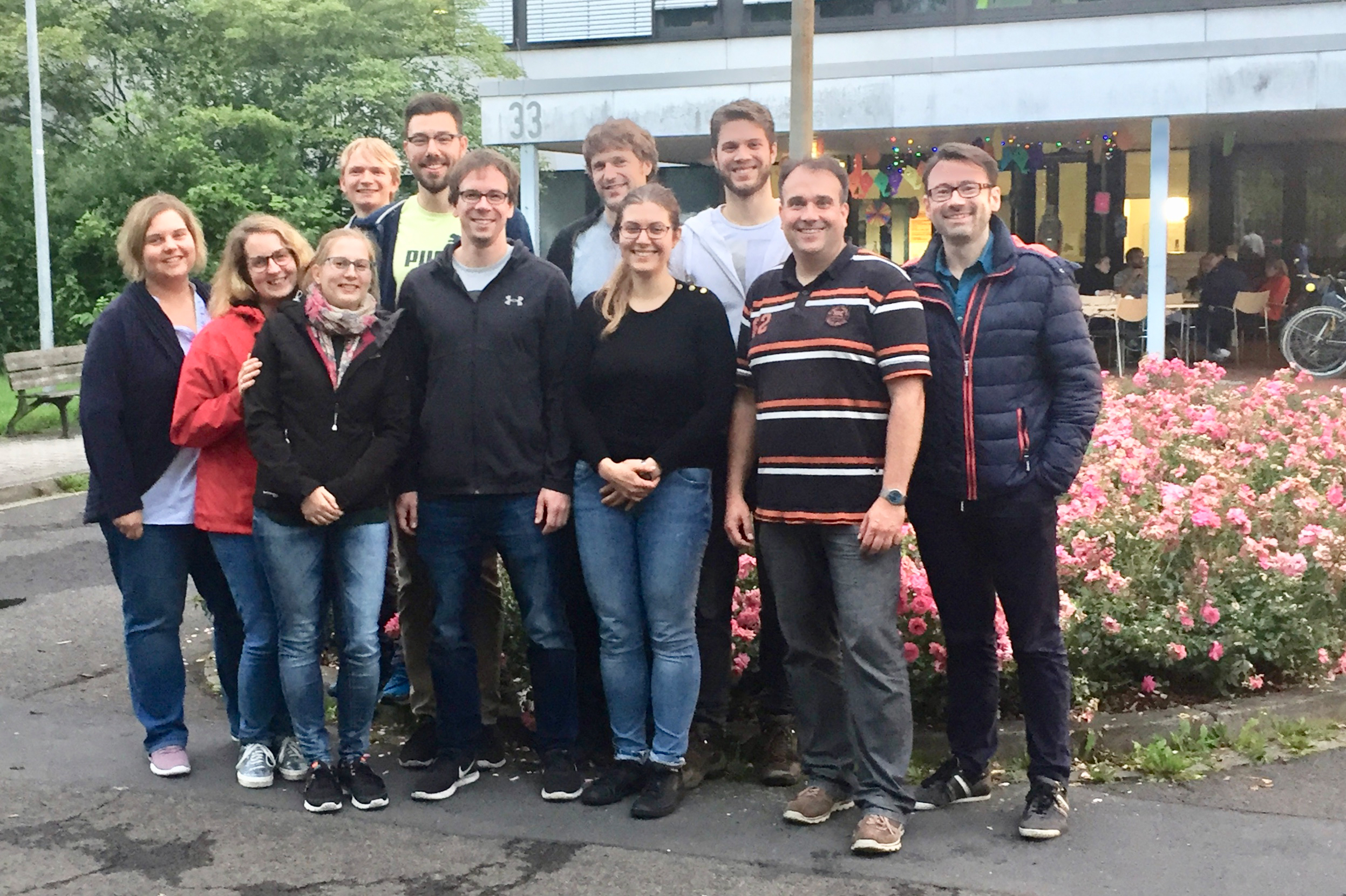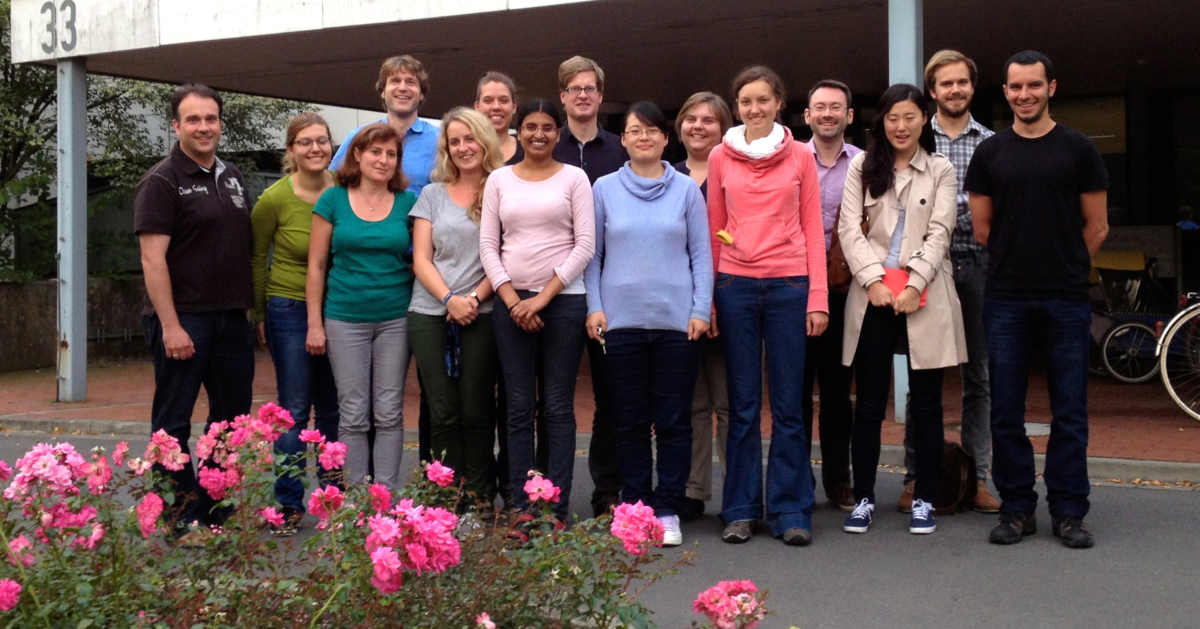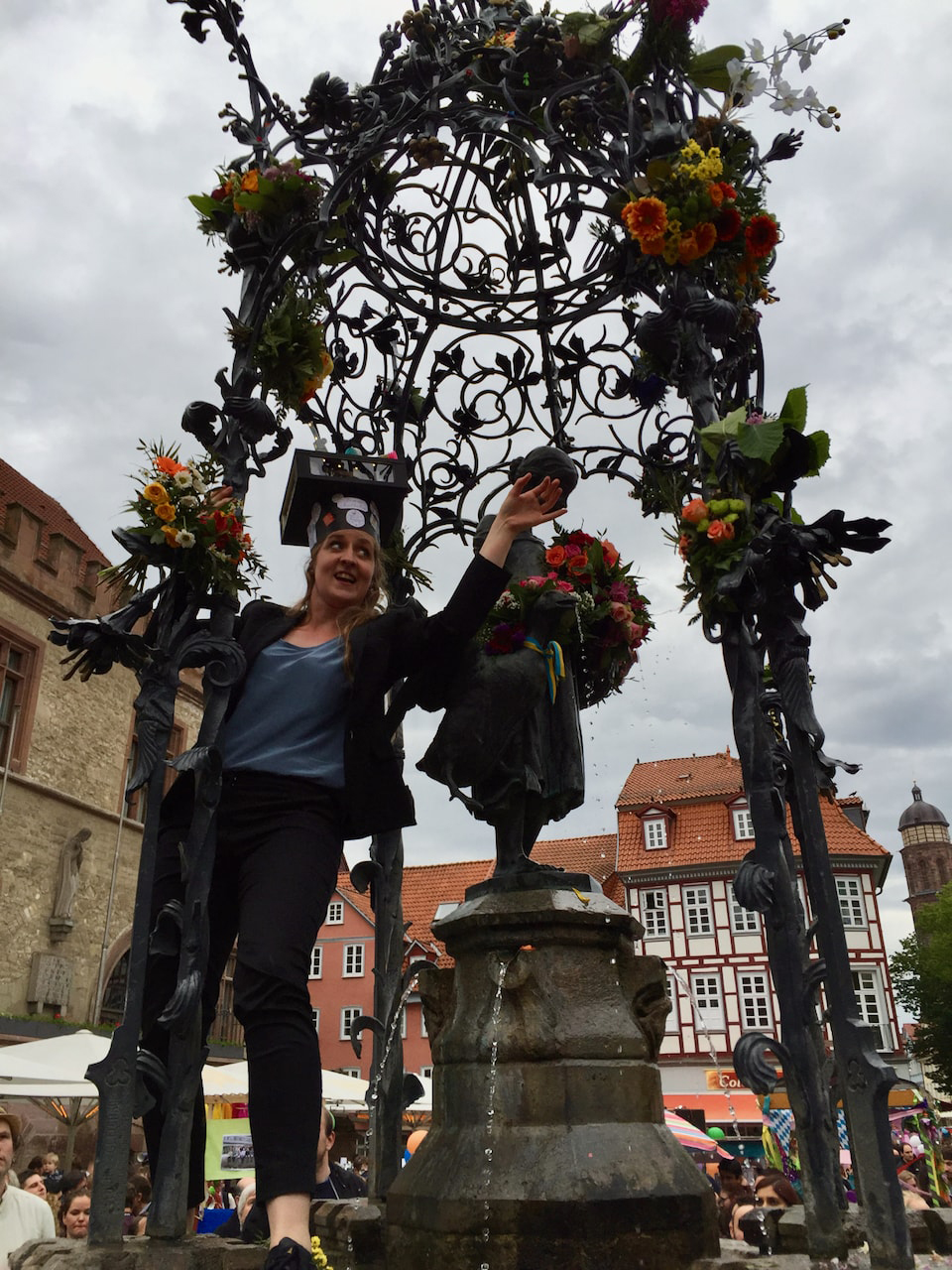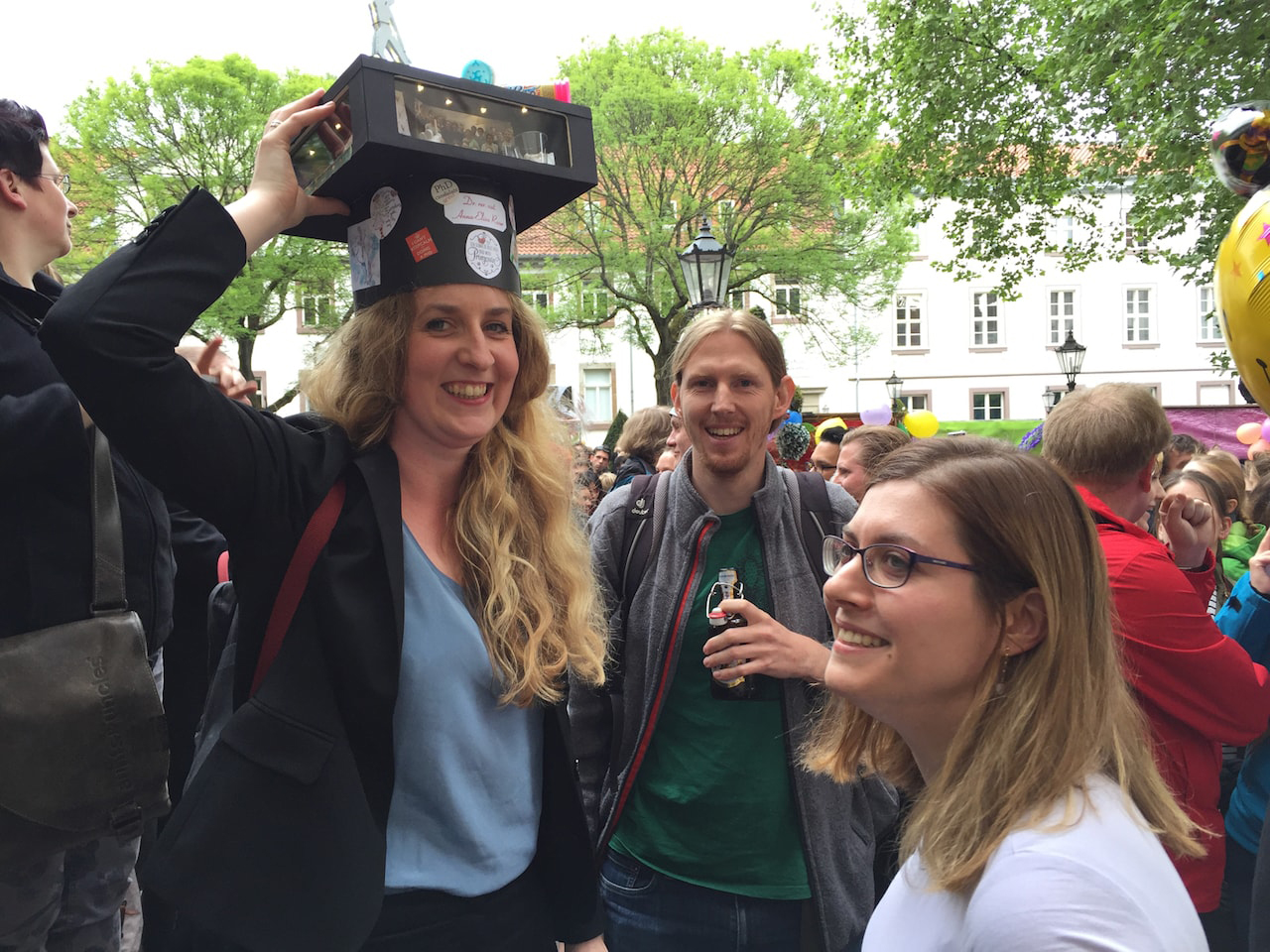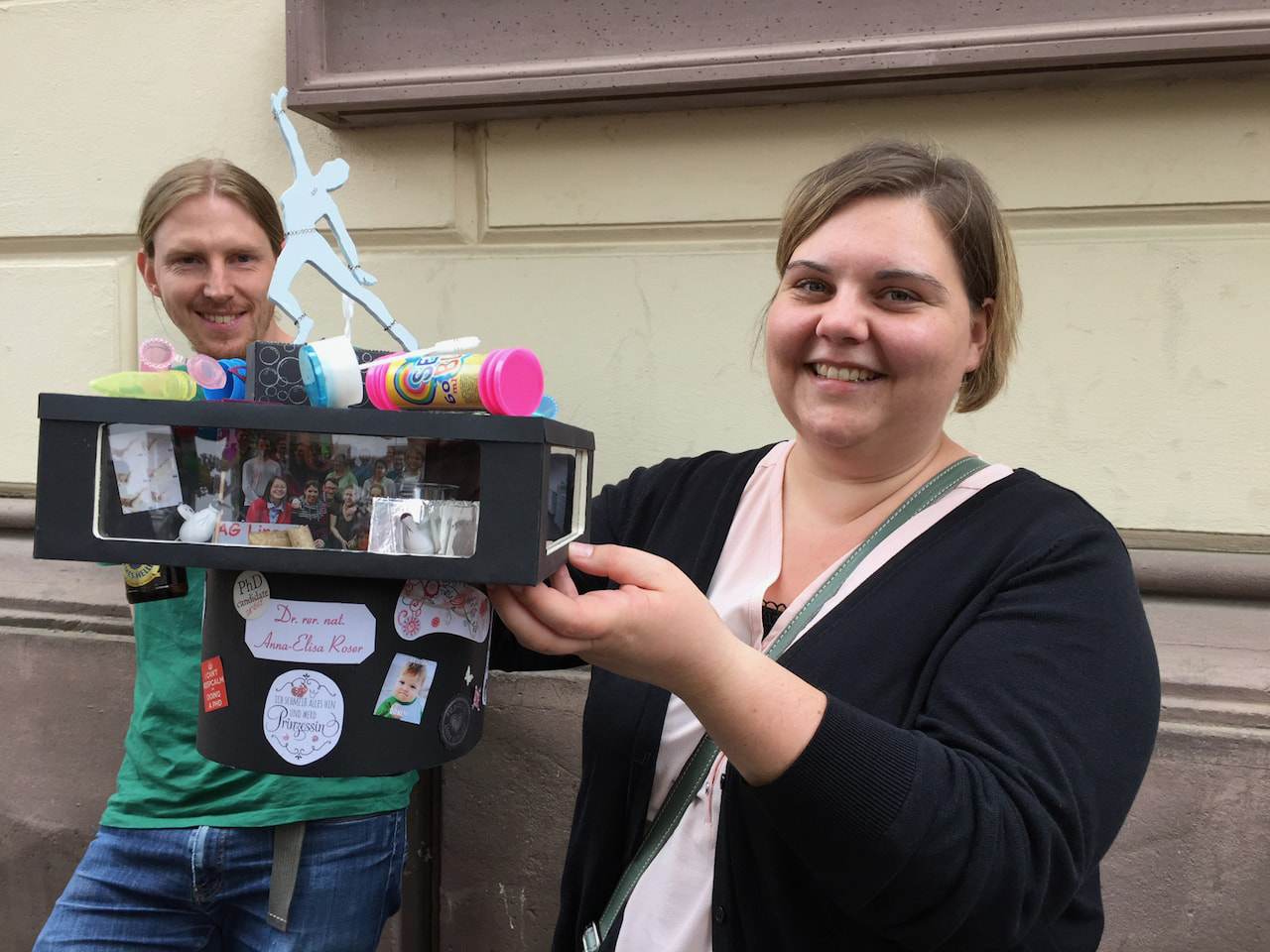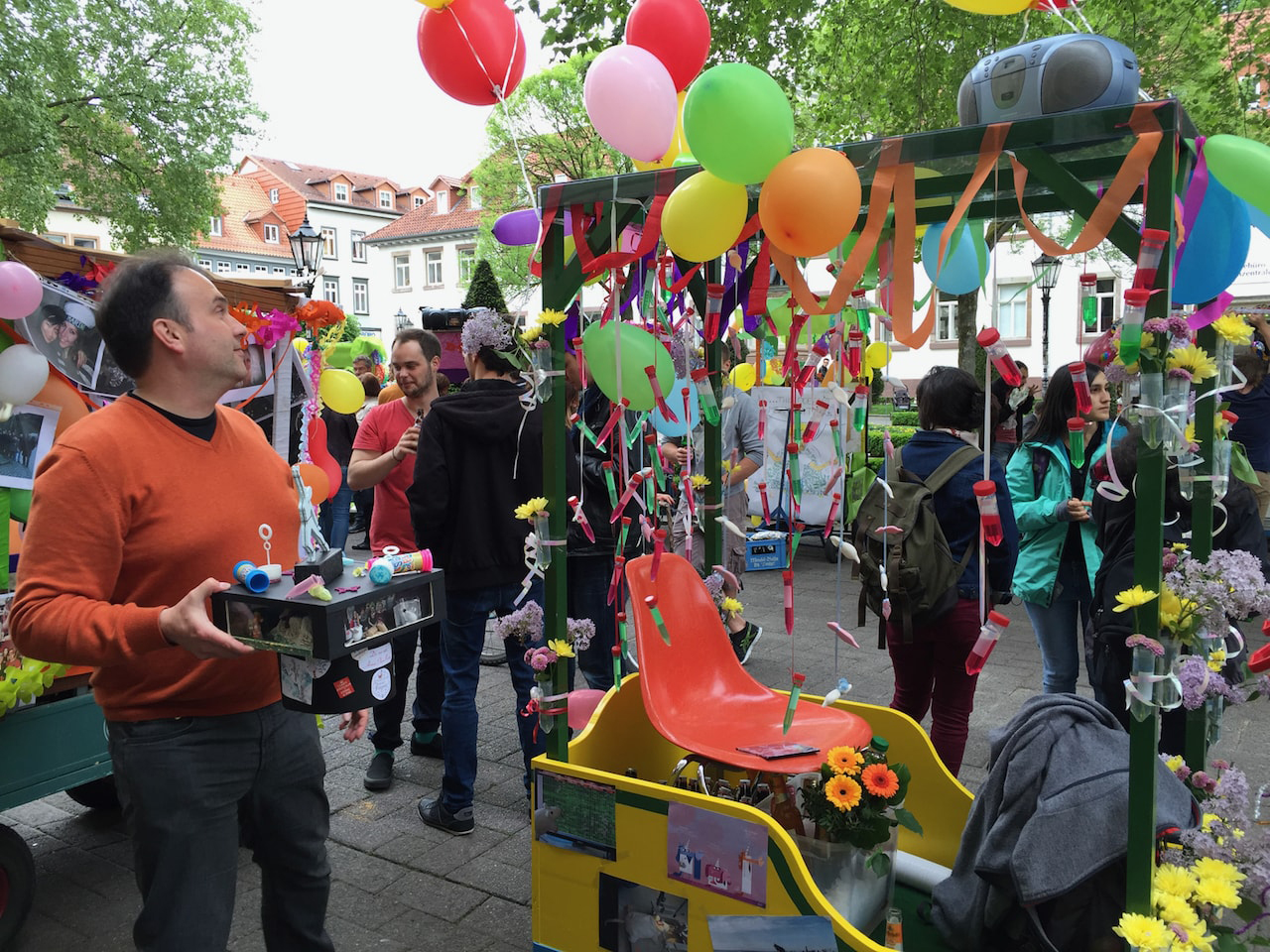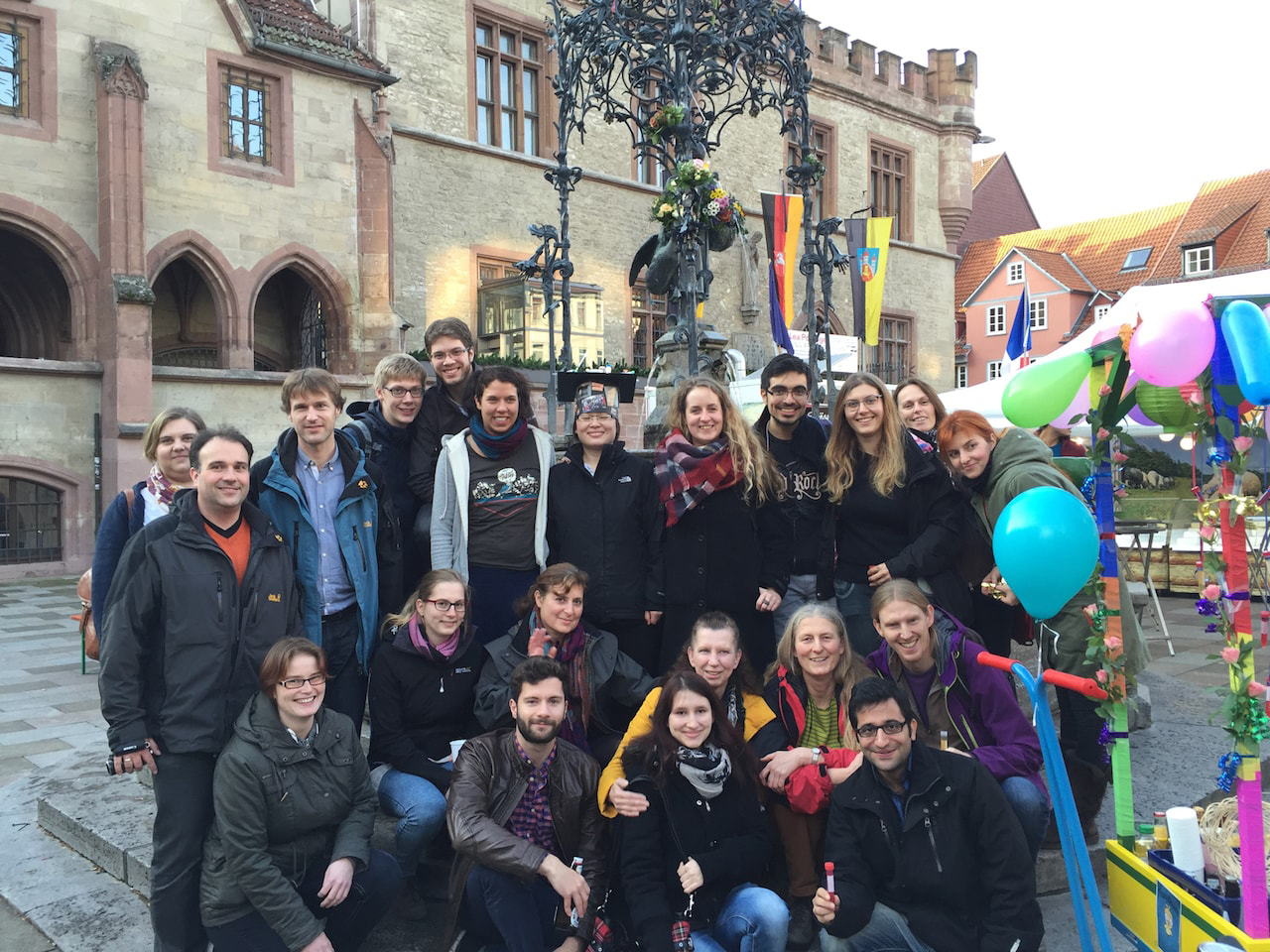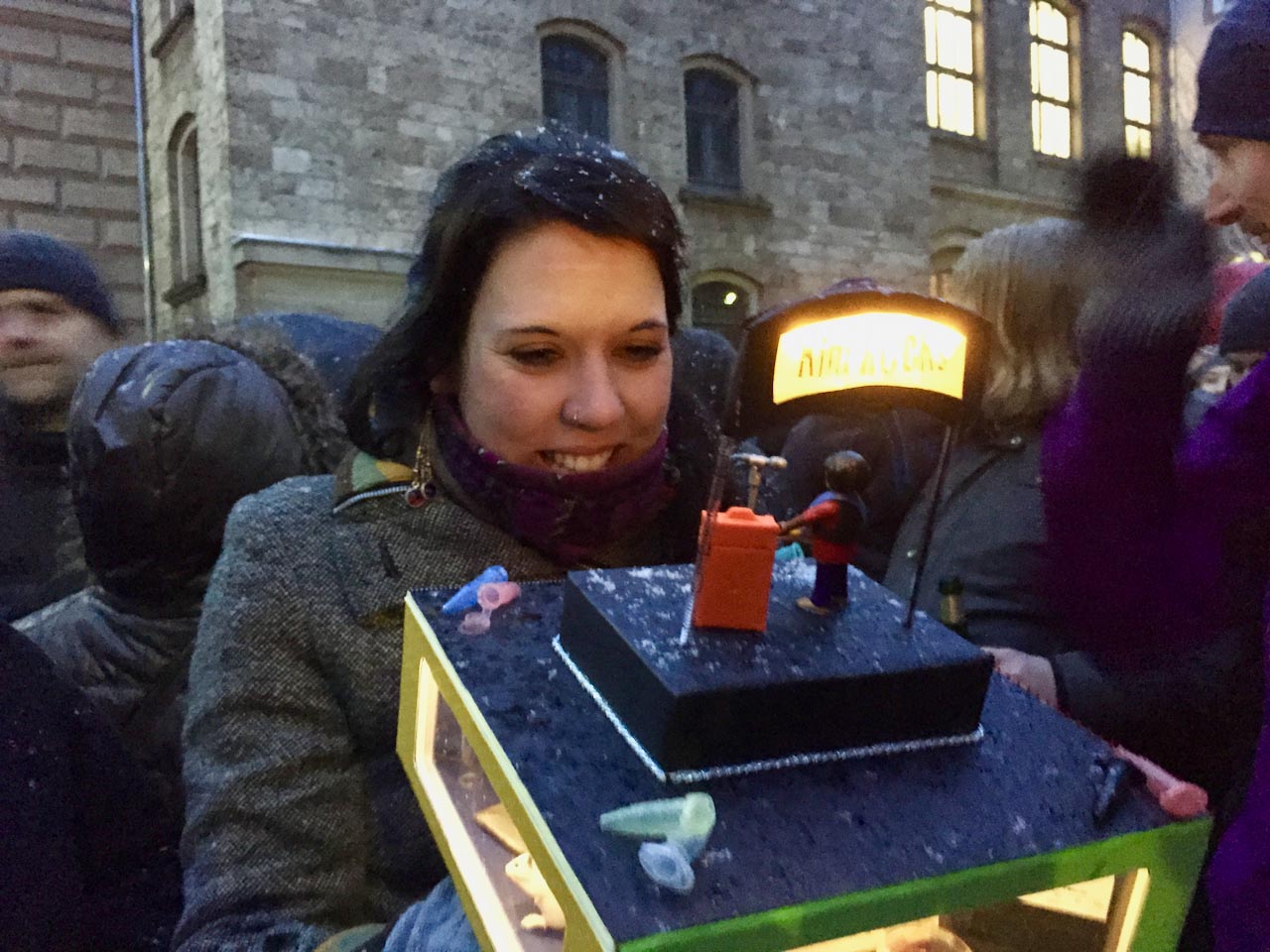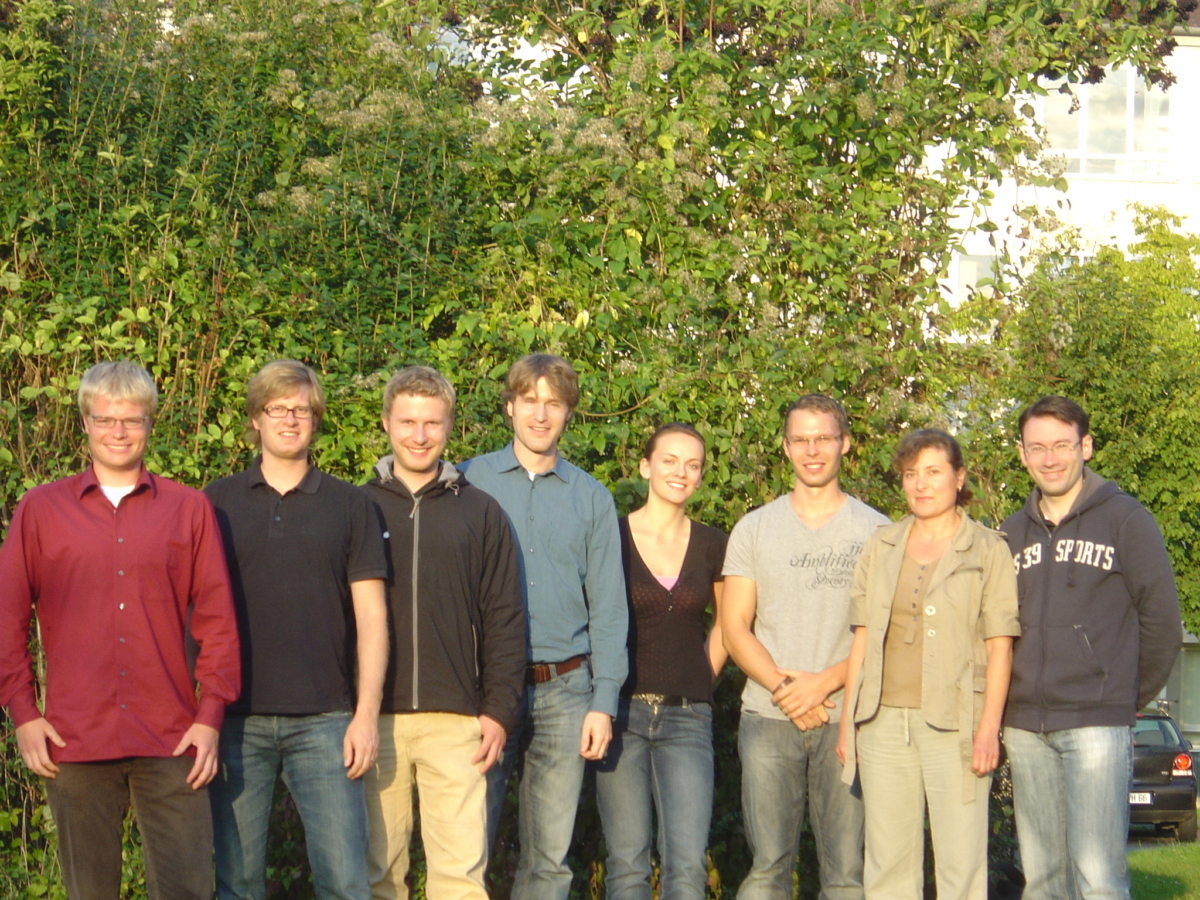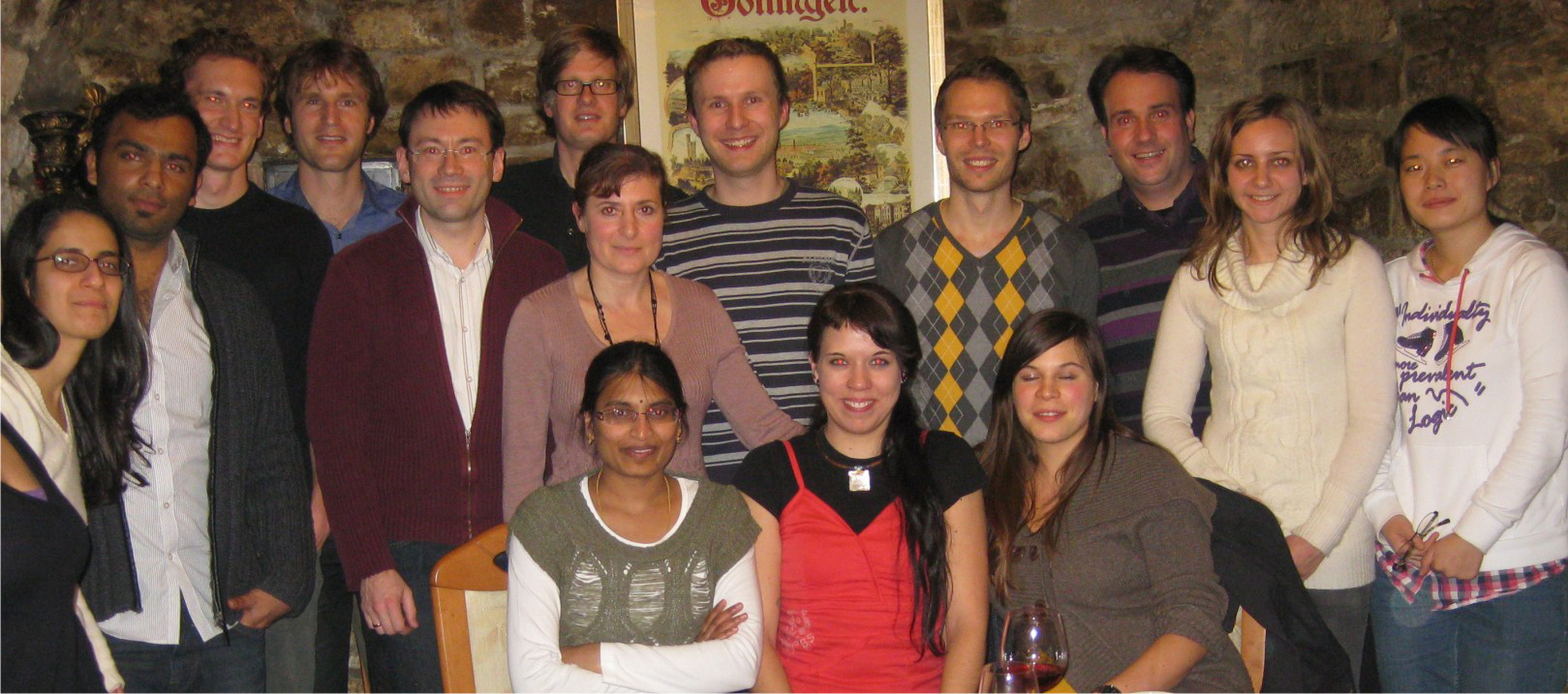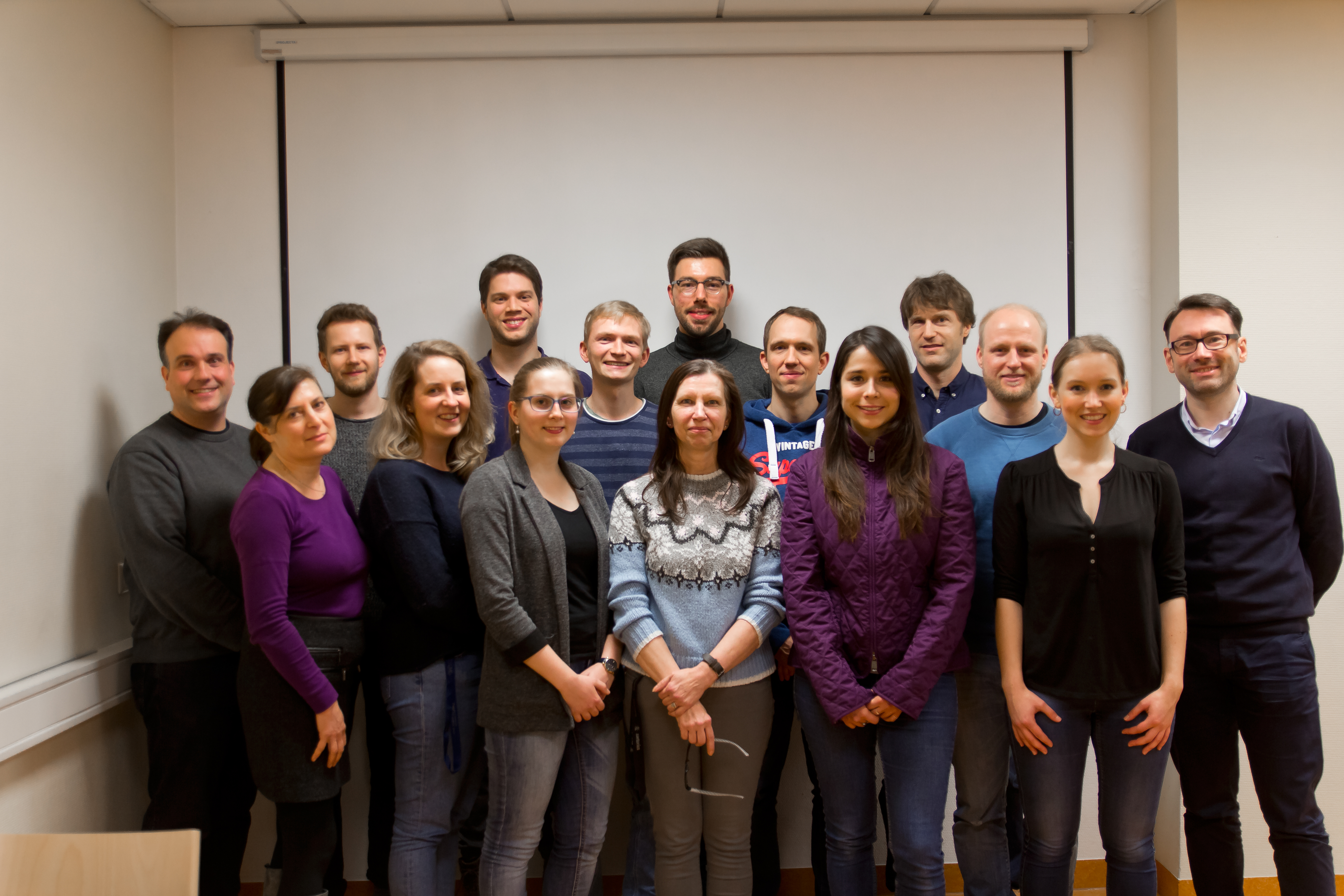People
Dirk Balke, MD Student
dirk.balke(at)stud.uni-goettingen.de
+49 551 39
My project aims to examine the role of autophagy in neurodegenerative diseases in vivo. I conduct an animal experiment, in which I use AAV-mediated gene transfer to inhibit autophagy in mice, in combination with a consecutive neurotoxin-treatment to provoke PD symptoms. The techniques I use are behavioral testing, immunohistochemistry and Western Blot.
Elizabeth Barski, Technical Assistant
ebarski(at)gwdg.de
+49 551 39 4749
Vivian Dambeck, Technical Assistant
vivian.dambeck(at)med.uni-goettingen.de
+49 551 39 61125
Karina Joppe, PhD Student
Karina.Joppe(at)med.uni-goettingen.de
+49 551 39 4749
My PhD project aims to investigate the role of iron in the pathogenesis of Parkinsons disease in vivo in a mouse model of iron intoxication with an additional intrastriatal injection of alpha-synuclein fibrils. Besides the behavioral analysis I use immunohistochemistry, biochemical and biophysical methods to comprehend the contribution of iron to alpha-synuclein spreading throughout the brain.
Prof. Dr. Paul Lingor, Principal Investigator
plingor(at)gwdg.de
+ 49 551 39 66356
+ 49 551 39 8405
919 – 2804
The motivation for our work is derived from clinical problems in the treatment of Parkinson’s disease (PD), Amyotrophic lateral sclerosis (ALS) and spinal cord injury (SCI). Using basic neurobiological techniques, we want to understand the mechanisms of the underlying pathophysiology in degenerative and traumatic CNS disorders. In a translational approach, our group works on the identification of biomarkers and novel therapeutic approaches for neurodegenerative disorders.
Dr. Lars Tatenhorst, Postdoctoral Fellow
lars.tatenhorst(at)med.uni-goettingen.de
+49 551 39 4749
My work focuses on neuronal degeneration and regeneration in cell culture as well as animal models of Parkison’s disease (PD). In toxin induced PD mouse models using 1-methyl-4-phenyl-1,2,3,6-tetrahydropyridine (MPTP) or 6-Hydroxydopamine (6-OHDA) we are investigating the influence of Rho kinase (ROCK) modulation on axonal regeneration. In a transgenic mouse model of hereditary parkinsonism (A53T) we are investigating the aggregation of alpha synuclein in the brain. Intracerebellar stereotactical injections; motor and behavioral testing on Catwalk, rotarod, cylindertest and novel object recognition test; tissue preparation and sectioning; HPLC; immunohistochemistry as well as immunocytochemistry and Western blotting; stereological cell counting and fluorescence microscopy are major techniques used in these projects.
Dr. Josua Kuttler, Clinical Research Associate
josua.kuttler(at)med.uni-goettingen.de
+49 551 39
As a medical doctor, I regularly see patients in the outpatient clinics for ALS and participate in the ROCK-ALS trial
Dr. Teresa Lengenfeld, Clinical Research Associate
teresa.lengenfeld(at)med.uni-goettingen.de
+49 551 39
As a medical doctor, I see patients in the outpatient clinics for ALS and PD and participate in the ROCK-ALS trial
Dr. Fabian Maaß, Clinical Research Associate
fabian.maass(at)med.uni-goettingen.de
+ 49 551 39 7094
Main Research Interest
- CSF biomarkers – focus on PD and atypical Parkinsonism
- Role of miRNA in neurodegeneration – focus on PD
- Orphan diseases – focus on NPC1 disease
- Clinical focus: neurodegenerative disorders (PD, atypical Parkinsonism, movement disorders)
Projects
- Biomarker for early diagnosis and disease progression of Parkinson’s disease (Lix-Study):
This project focuses on the detection of possible biomarkers in the CSF and other body fluids of PD patients using miRNA analysis, elemental profiles and proteomics combined with clinical parameters. - MicroRNAs in the pathogenesis of Parkinson’s disease:
This project focuses on the influence of specific miRNAs on protein levels in primary midbrain neurons.
Jonas Schünemann, MD Student
j.schuenemann(at)stud.uni-goettingen.de
+ 49 551 39 61129
My projects aims to investigate the influence of increased levels of the microRNA 132 and 212 in primary cell cultures of dopaminergic neurons. I am especially interested in their role in cell grwoth and regeneration e.g. in cell culture models of Parkinson’s disease. By analyzing the microRNAs’ influence on protein expression, I want to gain more information about mechanisms of neuronal growth, regeneration and the different characteristics of each microRNA.
Carmina Warth, PhD Student
carmina.warth-perez-arias(at)med.uni-goettingen.de
+ 49 551 39 61126
My PhD project is focused on detecting differential expression levels of proteins in the synapto-axonal compartment in Parkinson´s Disease (PD). To this end, both human as well as mouse tissues will serve as samples for protein quantification. The aim is to compare the protein expression levels of brain regions with high synaptic density, between PD and non-PD patients to detect significant changes in synaptic protein expression levels. Finally, the promising target proteins resulting from this approach will be directly modulated in vitro to establish functional and structural changes. During my project I will work with immunocytochemistry, western blotting and primary cell cultures.
